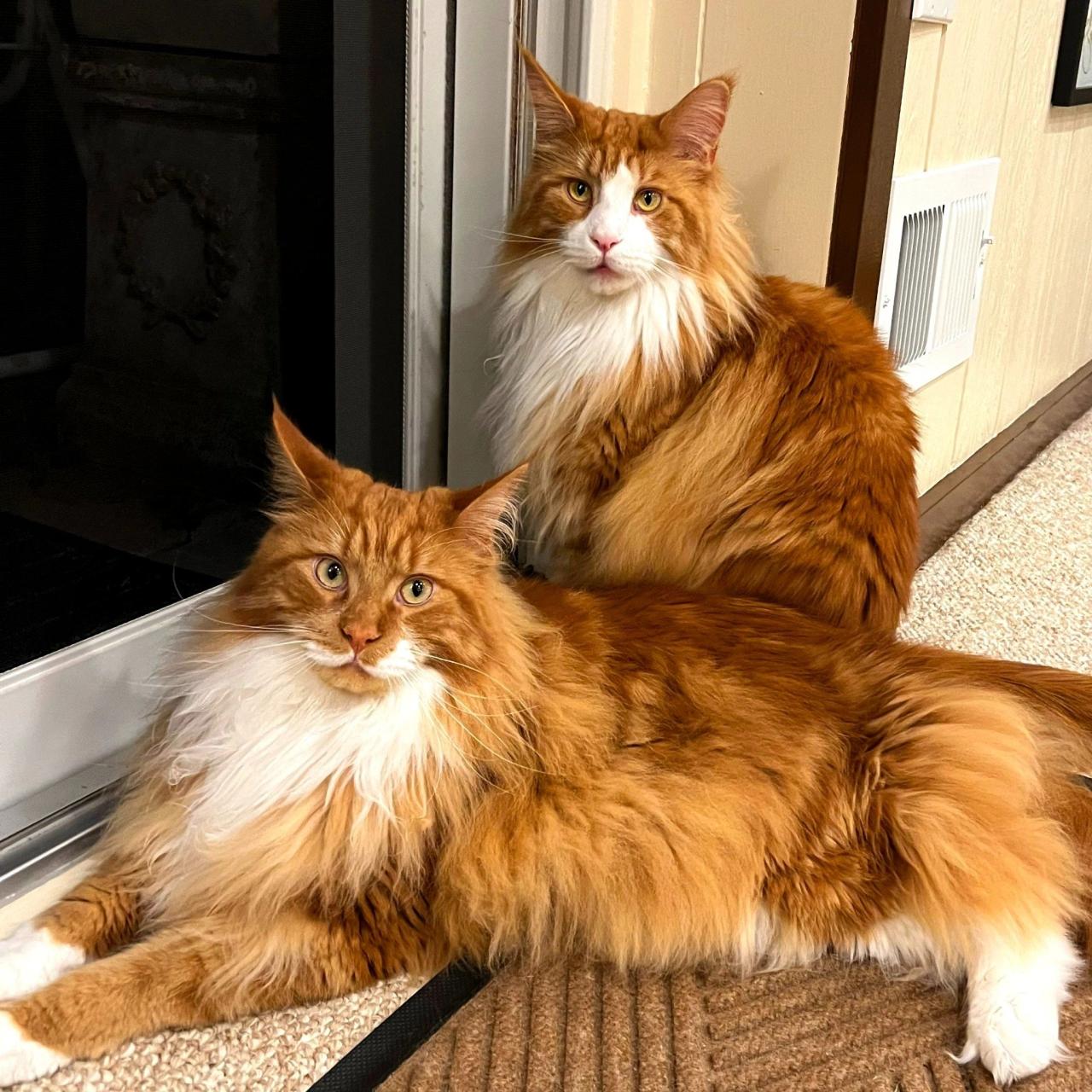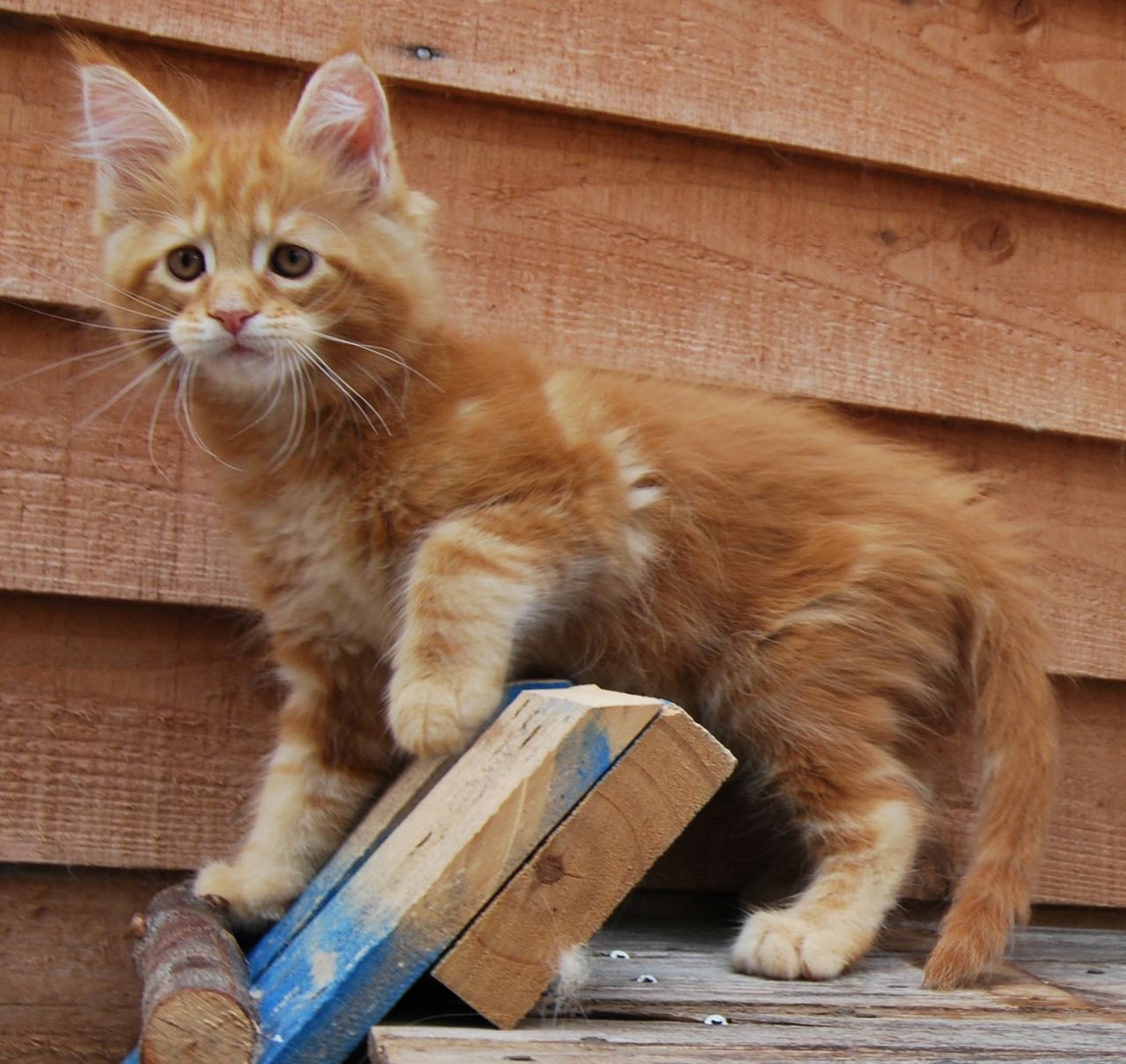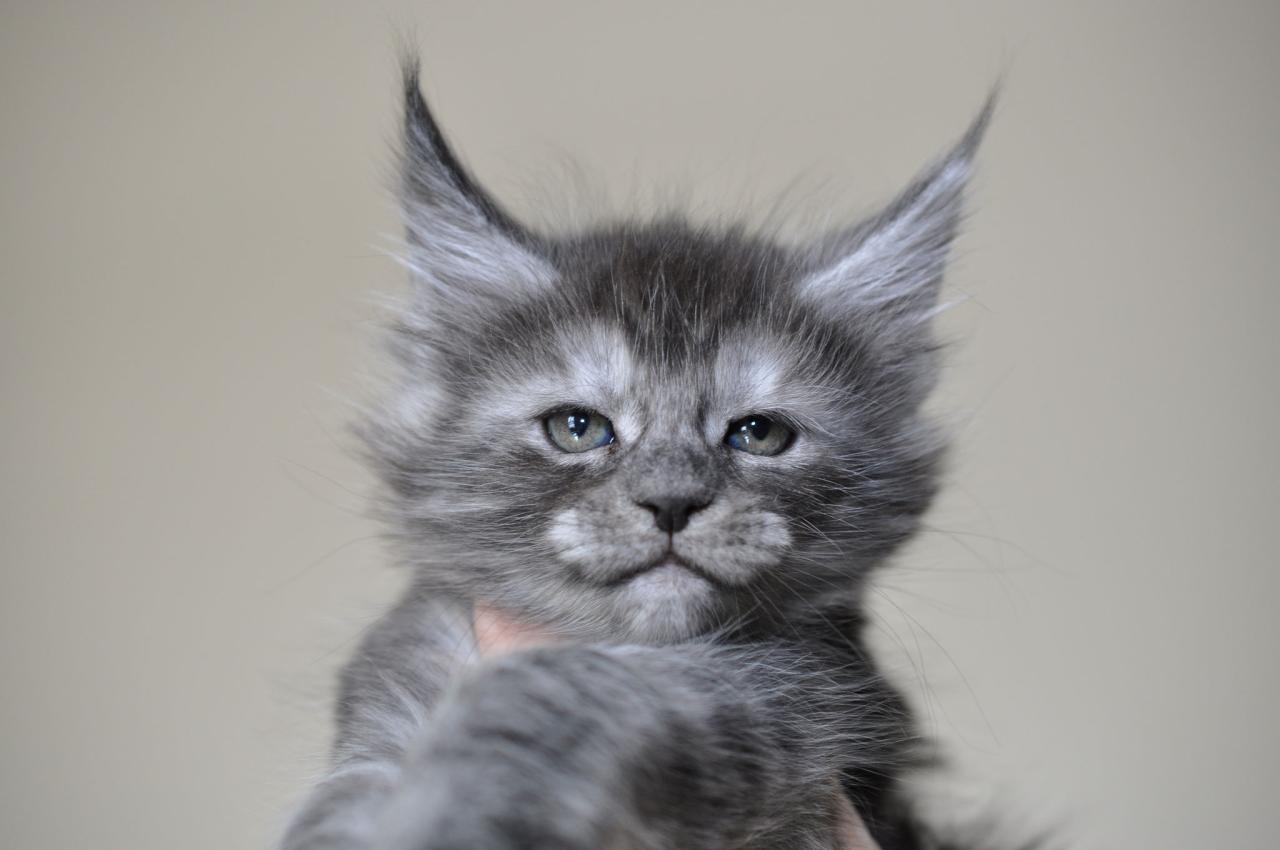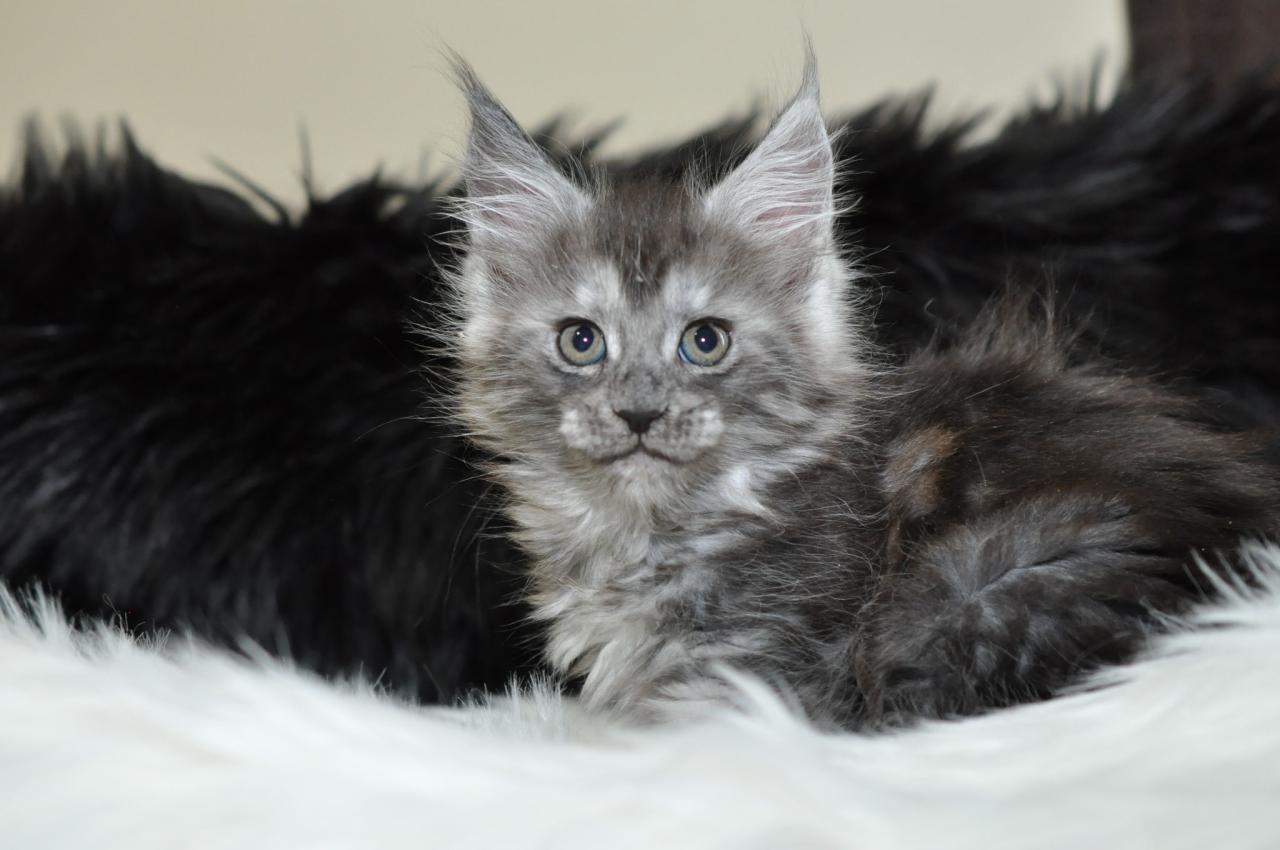Prepare to be captivated as we embark on an extraordinary journey into the world of coon kittens for sale near me. These magnificent felines, renowned for their captivating appearance and gentle nature, await their forever homes. Join us as we unveil the secrets of this enchanting breed, providing you with invaluable insights to guide your search for the perfect furry companion.
With an in-depth exploration of their distinctive characteristics, origins, and care requirements, this comprehensive guide empowers you to make informed decisions. Whether you’re a seasoned cat enthusiast or a first-time pet owner, our mission is to equip you with the knowledge and resources necessary to welcome a coon kitten into your life.
Coon Kittens Overview

Coon kittens, the adorable offspring of the majestic Maine Coon breed, captivate hearts with their distinctive appearance and gentle nature. These furry bundles of joy inherit the rugged charm of their ancestors, with a thick, flowing coat that resembles that of a raccoon, hence the breed’s namesake.
Their large, expressive eyes, often adorned with a touch of eyeliner, add to their irresistible appeal.
Temperament
Coon kittens are renowned for their laid-back and affectionate personalities. They thrive on human companionship and are known for their gentle, playful nature. Their playful antics and love of attention make them ideal companions for families with children or other pets.
Despite their large size, they possess a surprising delicacy and are known for their gentle touch.
Grooming Needs
The thick, luxurious coat of Coon kittens requires regular grooming to maintain its pristine condition. Brushing several times a week is essential to prevent mats and tangles. Their semi-longhaired coats are prone to shedding, especially during seasonal changes. Regular bathing can help reduce shedding and keep their fur healthy and lustrous.
Origin and History
The origins of the Maine Coon breed remain shrouded in mystery, but folklore suggests they descended from long-haired cats brought to North America by Viking explorers. Others believe they originated from matings between domestic cats and bobcats, giving them their distinctive physical characteristics.
Regardless of their true lineage, Maine Coons have become a beloved breed known for their rugged beauty and gentle nature.
Locating Breeders
Acquiring a coon kitten requires meticulous research and identification of reputable breeders. Begin by exploring local breeder directories or online forums dedicated to the breed. Attend cat shows or reach out to local veterinary clinics for recommendations.
Once you have identified potential breeders, conduct thorough due diligence to verify their credentials and ethical practices. Inquire about their breeding history, health testing protocols, and socialization methods. Request references from previous customers and visit their facilities to observe the kittens and their living conditions.
Contacting Breeders
When contacting breeders, be polite and respectful. Briefly introduce yourself, express your interest in their kittens, and inquire about availability. Schedule a visit to meet the kittens and their parents, and ask any questions you may have about their care and temperament.
Kitten Selection

Selecting the perfect Coon kitten requires careful assessment of their health, personality, and suitability for your lifestyle. By considering these factors, you can ensure a harmonious and fulfilling companionship.
Assessing Health and Well-being
- Bright eyes:Clear, alert eyes free from discharge indicate good health.
- Clean nose and ears:A healthy kitten should have a clean, dry nose and ears without any discharge or redness.
- Smooth coat:A soft, glossy coat without mats or bald spots is a sign of good nutrition and grooming.
- Energetic and playful:Kittens should be lively and engaged, exhibiting curiosity and a desire to explore.
- Good appetite:A healthy kitten should have a voracious appetite and eat regularly.
Choosing the Right Kitten
Consider your lifestyle and preferences when selecting a kitten. Factors to consider include:
- Personality:Some kittens are more outgoing and affectionate, while others are shy and reserved. Choose a kitten whose personality matches your own.
- Activity level:Coon kittens are generally active and playful, but some may be more energetic than others. Consider your own activity level and choose a kitten that matches your lifestyle.
- Compatibility with other pets:If you have other pets, make sure the kitten you choose is compatible with them. Introduce them gradually and supervise their interactions to ensure harmony.
Socializing Kittens
Socializing kittens is essential for their well-being. Expose them to a variety of experiences, including handling, grooming, and playing with toys and other kittens. This will help them become well-adjusted and comfortable around people and other animals.
Preparing for Your New Home
Before bringing your new kitten home, prepare a safe and comfortable environment. This includes providing food and water bowls, a litter box, a scratching post, and plenty of toys. Spend time with your kitten each day to bond with them and establish a routine.
Care and Nutrition: Coon Kittens For Sale Near Me

Caring for Coon kittens requires a comprehensive approach encompassing proper feeding, grooming, exercise, and preventive healthcare. Ensuring their well-being and longevity demands attention to each aspect, creating a harmonious environment for their development.
Feeding Coon kittens with a nutritionally balanced diet is paramount for their growth and overall health. High-quality kitten food specifically formulated for their unique needs provides essential nutrients, vitamins, and minerals. Consult your veterinarian for personalized recommendations based on your kitten’s age, weight, and activity level.
Grooming
Regular grooming is crucial for maintaining Coon kittens’ lustrous fur and preventing mats and tangles. Brushing their coat several times a week removes loose hair, distributes natural oils, and stimulates circulation. Additionally, regular bathing with a gentle shampoo and conditioner keeps their fur clean and healthy.
Exercise
Coon kittens are energetic and playful, requiring ample opportunities for exercise and mental stimulation. Providing interactive toys, climbing structures, and scratching posts encourages their natural instincts and promotes physical and cognitive development. Supervised outdoor playtime in a safe and secure environment allows them to explore and expend their boundless energy.
Veterinary Care
Regular veterinary checkups are essential for monitoring Coon kittens’ health, detecting potential issues early on, and administering necessary vaccinations. Vaccinations protect them from common feline diseases, ensuring their well-being and preventing the spread of infections. Follow your veterinarian’s recommended vaccination schedule to safeguard your kitten’s health.
Training and Enrichment

Training and enrichment are crucial for the well-being of coon kittens. Proper training instills good manners and prevents unwanted behaviors, while enrichment stimulates their minds and bodies, preventing boredom and promoting overall health.
Training coon kittens should start at an early age, around 8-10 weeks old. Positive reinforcement techniques, such as treats or praise, are most effective. Consistency and patience are key to successful training.
Basic Commands
Start with basic commands like “sit,” “stay,” and “come.” Use clear hand gestures and verbal cues. Reward the kitten immediately after they perform the desired action.
Good Manners, Coon kittens for sale near me
Teach kittens good manners like not scratching furniture, jumping on counters, or biting. Use firm but gentle corrections, such as a spray bottle with water or a loud “no.” Never punish kittens physically, as this will damage their trust and bond with you.
Mental and Physical Stimulation
Coon kittens are highly intelligent and active, so providing them with mental and physical stimulation is essential for their well-being. Interactive toys, puzzle feeders, and cat trees are great ways to keep them entertained and challenged.
- Interactive toys:Toys that move, make noise, or dispense treats stimulate kittens’ hunting instincts and provide mental enrichment.
- Puzzle feeders:These feeders require kittens to work for their food, stimulating their problem-solving skills and preventing boredom.
- Cat trees:Cat trees provide kittens with a safe and vertical space to climb, jump, and explore, promoting physical activity and reducing boredom.
Health Considerations
Coon kittens are generally healthy and robust, but like all breeds, they are prone to certain health issues. Understanding these potential health concerns and taking preventive measures can help ensure your kitten’s well-being.
Regular veterinary checkups, vaccinations, and parasite control are essential for maintaining your kitten’s health. Spaying or neutering your kitten can prevent various health problems and reduce the risk of unwanted litters.
Common Health Issues
- Hypertrophic Cardiomyopathy (HCM):A condition where the heart muscle thickens, leading to decreased heart function.
- Polycystic Kidney Disease (PKD):A genetic condition that causes cysts to develop in the kidneys, potentially leading to kidney failure.
- Hip Dysplasia:A condition where the hip joint does not develop properly, causing pain and mobility issues.
- Dental Disease:Coon kittens are prone to dental problems such as gingivitis and periodontitis due to their large mouths and teeth.
Importance of Spaying or Neutering
Spaying or neutering your kitten not only prevents unwanted litters but also offers several health benefits:
- Prevents Reproductive Cancers:Spaying females eliminates the risk of ovarian and uterine cancer, while neutering males reduces the risk of testicular cancer.
- Reduces Behavioral Problems:Spaying or neutering can reduce aggression, roaming, and spraying behavior.
- Improves Health:Neutered males are less likely to develop prostate problems, while spayed females have a lower risk of uterine infections.
Low-Cost Veterinary Care
Regular veterinary care is crucial for your kitten’s health, but it can be expensive. Consider these options for finding low-cost veterinary care:
- Low-Cost Clinics:Many animal shelters and rescue organizations offer low-cost or sliding-scale veterinary services.
- Veterinary Schools:Veterinary schools often provide discounted or free services performed by supervised students.
- Pet Insurance:Pet insurance can help cover the cost of unexpected veterinary expenses.
Kitten Costs
Purchasing and caring for a coon kitten involves both initial and ongoing expenses. Understanding these costs can help you make informed decisions and prepare financially for the responsibilities of kitten ownership.
The average cost of a coon kitten from a reputable breeder ranges from $800 to $1,500. Factors influencing the price include the kitten’s bloodline, coat color, and breeder’s reputation.
Additional Expenses
In addition to the initial purchase price, kitten ownership entails various ongoing expenses:
- Food:High-quality kitten food costs approximately $30-$60 per month.
- Vet Care:Regular vet visits, vaccinations, and spaying/neutering can cost $200-$500 annually.
- Supplies:Essential supplies like litter boxes, litter, toys, and grooming tools cost around $100-$200 per year.
Budgeting and Saving
To prepare for these expenses, consider budgeting and saving strategies:
- Monthly Expenses:Allocate a monthly amount for food, litter, and essential supplies.
- Annual Expenses:Set aside funds for annual vet visits and vaccinations.
- Emergency Fund:Establish an emergency fund for unexpected vet expenses or other emergencies.
Adoption vs. Buying

When considering bringing a coon kitten into your home, you have two primary options: adoption from a shelter or rescue organization, or purchasing from a breeder. Both paths have their own advantages and disadvantages, which we will explore here.
Adoption
Adopting a coon kitten from a shelter or rescue organization is a rewarding experience that offers several benefits. First and foremost, you are giving a homeless animal a loving home. These kittens often come from difficult circumstances and may have experienced neglect or abuse.
By adopting, you provide them with a second chance at happiness.
Adoption is also generally more affordable than purchasing from a breeder. Adoption fees typically cover the cost of vaccinations, spaying or neutering, and microchipping. Additionally, you may qualify for reduced adoption fees if you are a senior citizen, a student, or a military veteran.
One potential downside to adoption is that you may not be able to choose the specific breed or appearance of your kitten. However, most shelters and rescue organizations have a variety of kittens available, so you are likely to find one that meets your needs.
Locating Adoption Resources
There are many ways to find coon kittens available for adoption. You can visit your local animal shelter or rescue organization, or you can search online for shelters and rescues that specialize in coon cats.
Here are some resources to help you find coon kittens available for adoption:
- The Coon Cat Association: https://cooncat.org/
- The American Maine Coon Cat Club: https://www.mainecooncatclub.com/
- Petfinder: https://www.petfinder.com/
- Adopt-a-Pet: https://www.adopt-a-pet.com/
Frequently Asked Questions
Purchasing a Coon kitten can raise numerous questions and concerns. Here’s a comprehensive FAQ table to address common inquiries, dispel myths, and provide evidence-based answers about this beloved breed:
|
Do Coon kittens shed a lot? |
Yes, Coon kittens are known for their thick, double-layered coats, which shed moderately to heavily throughout the year. Regular brushing can help manage shedding. |
|---|---|
|
Are Coon kittens hypoallergenic? |
No, Coon kittens are not considered hypoallergenic. They produce a protein called Fel d 1, which can trigger allergic reactions in some individuals. |
|
What is the average lifespan of a Coon kitten? |
With proper care and nutrition, Coon kittens can live for an average of 12 to 15 years. |
|
Are Coon kittens good with children? |
Yes, Coon kittens are generally gentle and affectionate with children. However, it’s always important to supervise interactions. |
|
Are Coon kittens prone to health problems? |
While Coon kittens are generally healthy, they may be prone to certain health conditions such as hypertrophic cardiomyopathy (HCM) and polycystic kidney disease (PKD). |
Additional Resources

Explore a wealth of information and support for coon kitten owners through these invaluable resources:
Websites
- Maine Coon Cat Club: https://www.mainecooncatclub.com/
- The Cat Fanciers’ Association: https://www.cfa.org/
- The International Cat Association: https://tica.org/
Books
- Maine Coon Cats: A Complete Pet Owner’s Manualby Susan Kelley
- Maine Coon Cats: The Ultimate Guide to Ownership and Careby Gina Spadafori
- The Maine Coon Bible: Everything You Need to Know About Maine Coon Catsby Amy Shojai
Social Media Groups
- Maine Coon Cats Facebook Group: https://www.facebook.com/groups/mainecooncats/
- Maine Coon Cats Instagram Group: https://www.instagram.com/mainecooncats/
- Maine Coon Cats Twitter Group: https://twitter.com/mainecooncats
Organizations
- The Maine Coon Cat Rescue: https://www.maineccooncatrescue.org/
- The Maine Coon Cat Foundation: https://www.mainecooncatfoundation.org/
- The Maine Coon Cat Association: https://www.mainecooncatassociation.com/
Local Veterinarians
Contact your local veterinarian for expert advice and care for your coon kitten. Here are some recommended clinics:
- [Insert local veterinary clinic name 1]
- [Insert local veterinary clinic name 2]
- [Insert local veterinary clinic name 3]
Ending Remarks
As we conclude our exploration of coon kittens for sale near me, we hope you feel empowered and inspired to embark on the journey of finding your perfect feline friend. Remember, these extraordinary creatures deserve nothing less than a loving and nurturing home where they can thrive and bring immeasurable joy to your life.
With the guidance provided in this comprehensive guide, we wish you all the best in your search for the purrfect coon kitten companion.
